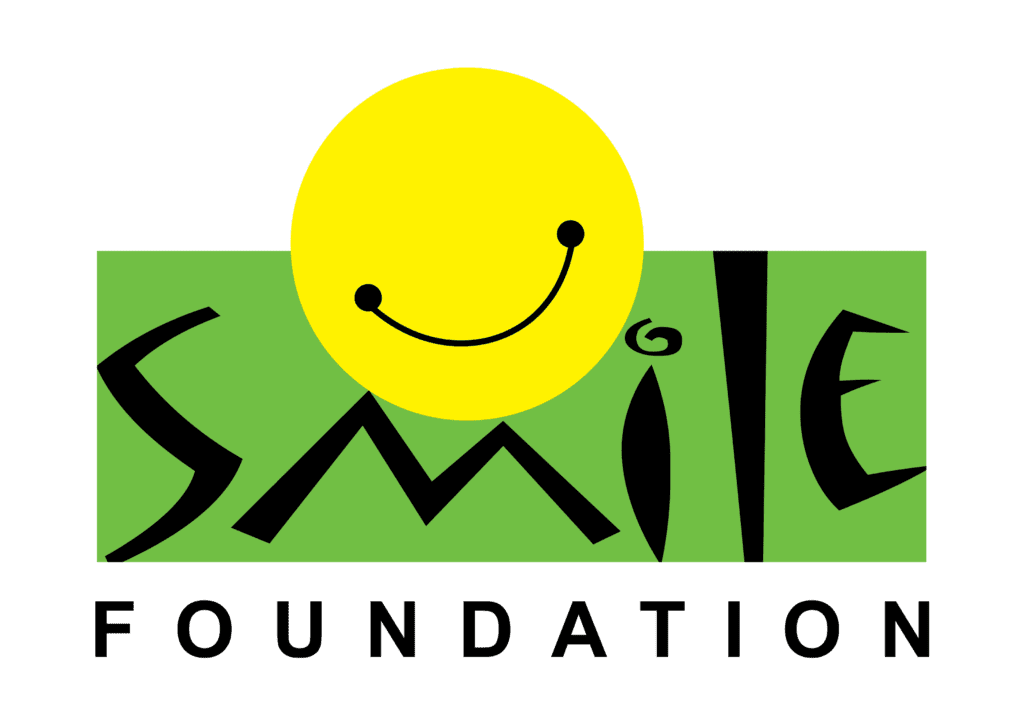VOLUME 1 - 2019

smilescapes
“I didn’t know it would be so exciting. I made so many new friends and we sang together, played games related to music and worked together. The workshop was a fun learning place. Music brought us together,” shares Chhavi, a student at a Mission Education centre in Delhi.
Chhavi and 300 other children are part of the ongoing Amani Project that combines learning theory from the Yale Center for Emotional Intelligence with music therapy and music-making. After a successful venture in the USA, South Africa, Tanzania, and Bagamoyo, the Amani Project was initiated in India by Children in Harmony in collaboration with Smile Foundation.
Music is therapeutic and a powerful force for bringing people together into a community. The Amani Project uses the power of making music together to build a lifetime of empathy between children around the world.
Inspired by life changing impact music has on people, the project aspires to instill emotional intelligence and value of empathy among children through music. The vision of the project is that each person is powerful and should have access to his, her, their dreams. Hundreds of children across different countries have participated in the project which has helped in breaking barriers – physical, mental, emotional and social
When children are given the chance to make music, they express themselves by creating an emotional common ground with others. Children in Harmony has partnered with the Yale Center for Emotional Intelligence to weave their program into its music-making curriculum to integrate emotional intelligence into the children’s everyday lives. The Amani Project uses their Mood Meter methodology, to teach children not only music theory but also how to regulate their emotions to create a fertile ground for collaboration. Students learn a common vocabulary to identify, comprehend and manage their emotions. Emotionally intelligent learning environments are foundational to helping children and adults lead productive, healthy, and fulfilling lives. Once kids complete the Amani project, they can continue to build their music making skills together, with their newfound emotional intelligence as the guide.
The project focuses on music theory, music practice and its association with emotional intelligence training. It also facilitates a host of other effects, such as:
Helps children express themselves
It allows children to express their angst and negativity in a constructive manner, providing them with an outlet through which they can present their real-self. Music creates a space for them where they feel safe and are able to actually comprehend their feelings, able to make sense of their emotions and gauge their responses to different situations.
Maintains peace and harmony
The reverberation of notes allows children to connect on a plane of consciousness that is far removed from the reality they are facing. The fluidity of music allows them to immerse themselves in the beat, the rhythm, the tonality and the tempo. It allows them to work in harmony with each other while playing and performing. This enables them to become one identity and a part of something that is bigger than them Through the reverberating medium of music, children are able to collectively engage with each other on an abstract level and connect on a different plane of consciousness with the objective of gaining insight and perspective into each other’s life.
Inculcates leadership skills
Music therapy and composition allows children to learn, play and compose basic musical concepts. The idea is designed to create a broad ambit of empathy builders in the community, enable children to make and co-create music collectively, engage the community in activities related to empathy and inculcate skills of leadership in children. It allows for the creation of peer educators who can further the concept of music therapy, harmony and learning.
These include writing empathy songs with a friend, making musical instruments and performing for the community. The expected outcomes of such initiatives include enhancement of peer learning skills and confidence among children, creation of community change agents and engagement with communities to build long-term empathy and wider participation.
Breaks socio-cultural boundaries
Music also helps the children improve their articulation. They are able give their thoughts a structure, which enables them to communicate with the world in a better manner. It allows for the development of their social, cognitive and behavioral skills.
The children of today will become the youth, the parents, the leaders of tomorrow. If humane values are instilled as a foundation in their early years, through practised experiential learning, these children, transitioning into youth, will possess the emotional intelligence, empathy, critical thinking skills, gender sensitization, appreciation and celebration of diversity, self-regulation, and knowledge required to prevent them from causing damage or harm to themselves, their community and the world in which they live. An early focus on Personal, Social and Emotional Learning provides the crucial preparation and foundation for the children to prosper as youth, and indeed in later life.



